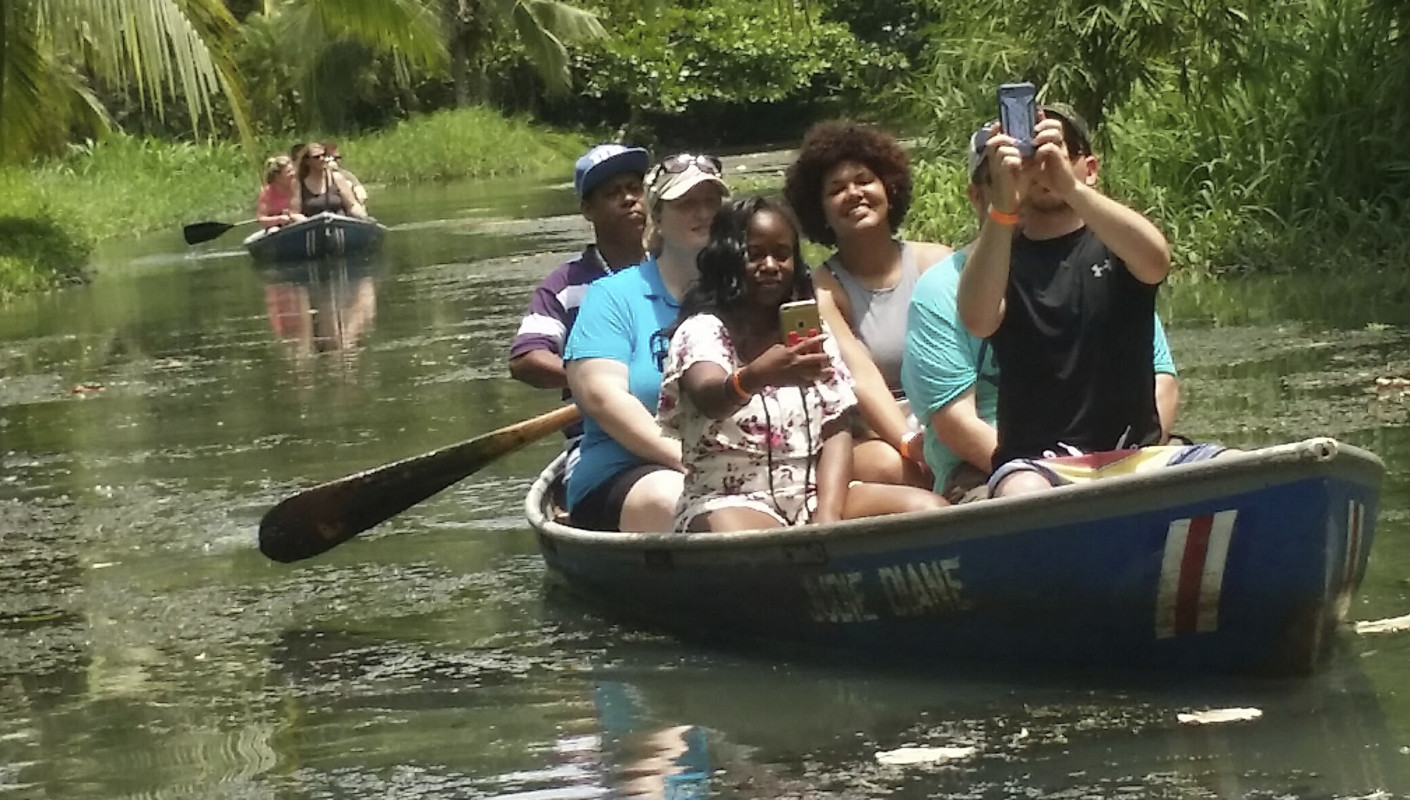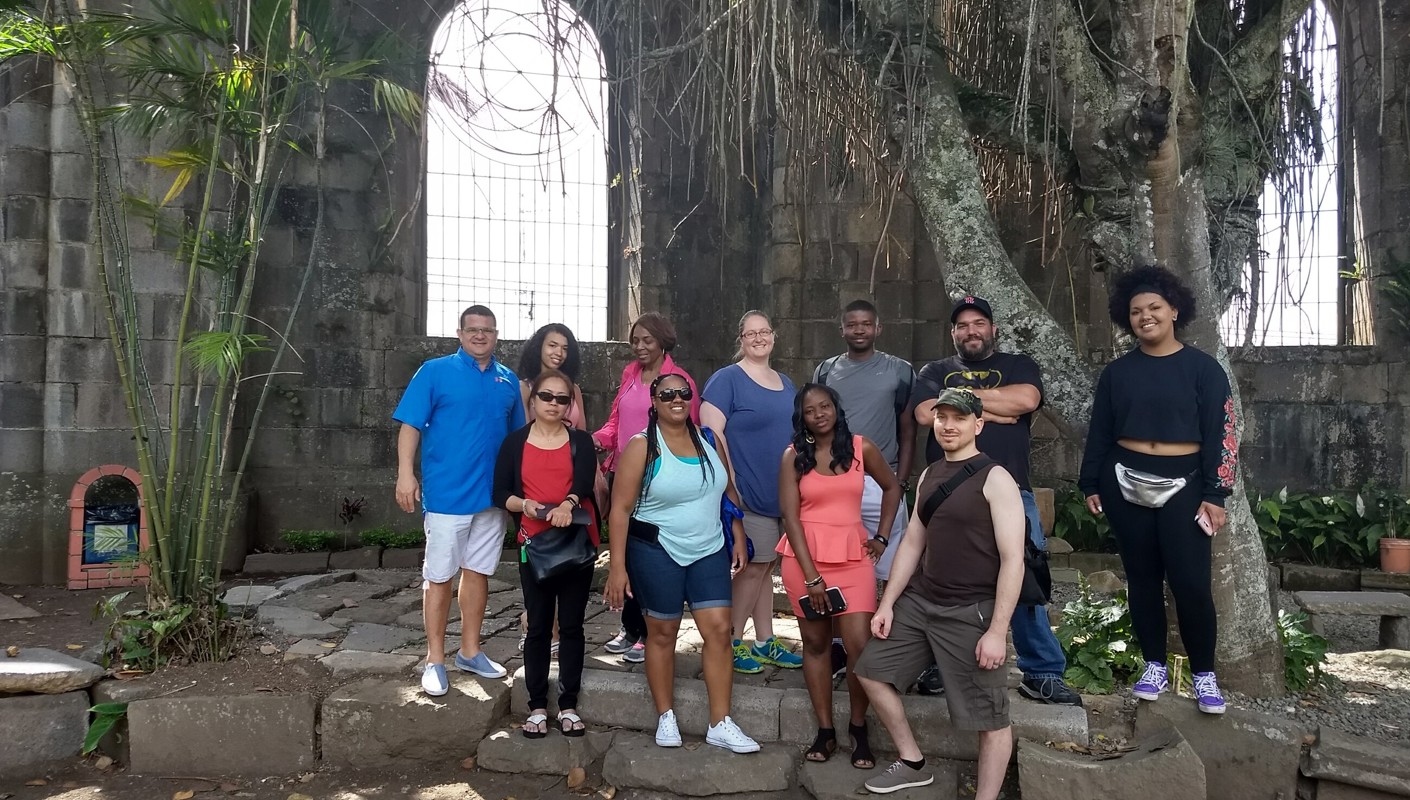STUDY ABROAD WITH IVY TECH
Short-term study abroad is a great opportunity to experience a new culture and become an adept global citizen. Among U.S. employers, 93% seek applicants with intercultural skills. Academic travel will make your resume stand out.
Ivy Tech takes students to countries all around the globe, offering a variety of study abroad options during spring, summer, and fall breaks. You could even study abroad for a whole semester with one of our partner institutions.
UPCOMING TRIPS
While no trips are currently planned for just Ivy Tech students, we encourage students to explore upcoming trips offered through our partner, the Tennessee Consortium for International Students (TnCIS).
HOW TO GET STARTED
To participate in a study abroad opportunity with Ivy Tech Community College:
- Learn about travel opportunities by attending a Study Abroad information session.
- Speak with your academic advisor to determine the ideal program fit.
- Work with your trip leader to explore financial resources through scholarship availability, financial aid, or other college-designated funds.
- Complete an application provided by the trip leader.
- Once accepted, register your trip with the Ivy Tech International Travel Registry to ensure you're covered by the college's travel accident insurance program.
- Perform all additional pre-departure program requirements as directed by your trip leader.
UPCOMING TRIPS
-
TnCIS Partnership Empowers Ivy Tech Students to Travel Globally
 Ivy Tech partners with Tennessee Consortium for International Studies (TnCIS) to make academic travel available to students. From Brazil to Australia or Italy to South Africa, Ivy Tech students can enroll as guests and participate in a wide variety of summer travel programs.
Ivy Tech partners with Tennessee Consortium for International Studies (TnCIS) to make academic travel available to students. From Brazil to Australia or Italy to South Africa, Ivy Tech students can enroll as guests and participate in a wide variety of summer travel programs. About the Programs
These programs are academic in nature and students will be required to participate in all scheduled classes, and related activities. Classes will be held on site, and subject-specific assignments and excursions will be required. Academic credit earned through these programs can transfer back to Ivy Tech.
Questions?
Contact Dr. Paul Odney for more information.
Paul Odney, Ph.D.
Associate Vice Chancellor for Academic Affairs
Ivy Tech Community College – Evansville Campus
podney@ivytech.edu
812-429-1411

QUESTIONS ABOUT STUDY ABROAD?
When considering a trip
Speak to the trip leader to learn more about the program you're interested in, as well as learn of any financial aid opportunities available for it. Also be sure to work with your academic advisor to ensure it will fit within your overall education goals and plan.
Preparing for your trip
Continue to learn and work with your trip leader as you prepare for your trip. They will help guide you through paperwork and other requirements ahead of your departure.
Additionally, the Center for Global Education provides resources to prepare students for study abroad, such as helpful tips on what to expect and what to prepare for as a study abroad participant. Country specific handbooks are also available.
ADDITIONAL RESOURCES & POLICIES
-
All travelers must be registered with the College's International Travel Registry prior to departing for their trip. It's recommended that you complete the form as soon as you are accepted to your study abroad program.
This registration notifies the College of your whereabouts, provides emergency contact information and enrolls you in the College's travel accident insurance program.
-
Health & Safety
As a traveler in a foreign land, the best way to ensure health and safety and to avoid emergencies is to be well-prepared, well-informed, and alert. Self-awareness and personal responsibility are imperative components of a positive experience abroad. Further, you are obligated to act in accordance with foreign law and are encouraged to become familiar with local laws before traveling. The resources below address health and safety considerations of travel abroad.
- U.S. State Department - The U.S. State Department website provides country specific information regarding safety, security, crime rates, travel alerts & warnings, judicial system, health care system, and emergency contact telephone numbers. A specific Study Abroad page is also available. Travelers should register through the Smart Traveler Enrollment Program (STEP). STEP is a free service to allow U.S. citizens and nationals traveling abroad to enroll their trip with the nearest U.S. Embassy or Consulate. By enrolling, travelers receive important information from the Embassy about safety conditions in the destination country, and it helps the U.S. Embassy, family, and friends contact you in an emergency, whether natural disaster, civil unrest, or other emergency.
- Centers for Disease Control and Prevention (CDC) - Travelers should be familiar with the infectious diseases to which they may be exposed. With this knowledge, they may modify their behavior to avoid contracting infections, obtain necessary medication and vaccinations before travel and recognize symptoms of disease. The CDC site has health recommendations, immunization information, and specific health concerns related to your host or destination country.
- Federal Bureau of Investigation (FBI) - Get safety tips specifically meant for travelers abroad.
-
Every registered student, faculty or staff traveler will be insured under the College's International Travel Insurance Policy through ACE American Insurance Company. The plan provides coverage for Accidents and Sickness, Medical Evacuation, Repatriation of Remains, Accidental Death & Dismemberment, Political & Natural Disaster Evacuation, Trip Cancellation/Interruption*. For questions about the plan benefits and services, contact Gallagher Student Health, or risk@ivytech.edu.
The cost to a student traveler for a trip less than 30 days is $25. More than 30 days, it will be determined by trip length. The cost to a guest traveler is $50 for a trip less than 30 days. Every insured traveler should carry a Global Assistance ID card in order to access the services provided. Once you have registered through the International Travel Registry, you will be provided a link view the policy.
Coverage will start on the actual start of the trip. It does not matter whether the Trip starts at the Covered Person’s home, place of work, or other place. It will end on the first of the following dates to occur: 1. the date the Covered Person returns to his or her Home Country; 2. the scheduled Trip return date; or 3. the date the Covered Person makes a Personal Deviation (unless otherwise provided by the Policy).*The coverage extension for trip cancellation/interruption is limited to $1500, and generally, is applicable only in the event of the covered person's or family member's injury, illness, or death. A more comprehensive trip cancellation and interruption coverage may be available through Insure My Trip.
-
Registered travelers will have access to the ACE Travel Assistance Program for arranging services such as:
- Medical Assistance including referral to a doctor or medical specialist, medical monitoring when you are hospitalized, emergency medical evacuation to an adequate facility, medically necessary repatriation and return of mortal remains;
- Personal Assistance including pre-trip medical referral information and while you are on a trip: emergency medication, embassy and consular information, lost document assistance, emergency message transmission, emergency cash advance, emergency referral to a lawyer, translator or interpreter access, verifies medical benefits and assists with medical claims process;
- Travel Assistance including emergency travel arrangements, arrangements for the return of your traveling companion or dependents and vehicle return;
- Security Assistance including a crisis hotline and on-the-ground security assistance to help address safety concerns or to secure immediate assistance while traveling as well as access to a secure, web-based system for tracking global threats and health or location based risk intelligence.
- If You Are Arrested:
- First, ask politely to notify your embassy.
- If you are refused a phone call, be persistent but polite.
- Find a U.S. Embassy or Consulate.
- Then, call ACE Travel Assistance.
- Then, call your program leader or supervisor.
- While in custody (for U.S. citizens), a consular officer can help you find legal representation and monitor the conditions of your detention. A consular office cannot provide bail money or arrange for free legal aid.
- Do not admit to wrongdoing or sign anything.
- Do not agree to help your detainer.
-
Proper documentation and identification is required for entry into foreign countries and re-entry into the U.S. Requirements vary by country based on citizenship, purpose of visit and length of stay. The U. S. State Department provides information regarding the travel documents required for the country in which you will be traveling.
Make copies of your passport, airplane tickets, driver’s license, credit cards, confirmation of vaccines and insurance that you take with you. Keep one copy at home; carry a second copy with you but separate from the originals. -
- The Program Leader Handbook details the process for leading a program.
- All Program Leaders are required to complete an e-Learning, International Travel Study Program Leader 101, which can be found in the IvyLEAD Learning Library.


